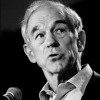
Author Archive | krlatham


The Triumph of South Park Economics? (part 2)

The Failure of South Park Economics (part 1)

Krugman does not understand Austrian Economics

Bubble Ahoy!

The Irrefutable Logic of South Park Economics

‘Tax cuts have never extinguished a fire’ and other such nonsense

Disingenuous Critics Swing and Miss at Ron Paul’s Economics

Did Obama save Chrysler?

